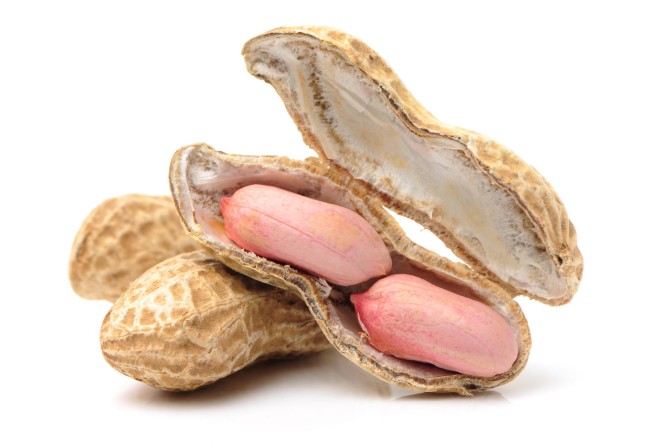
Peanuts help maintain vascular health when you eat high-fat meals

Peanuts with a meal benefits blood health
Having peanuts as part of a high-fat meal can prevent potential ill effects of the meal on blood vessel function, according to a study by Pennsylvania State University. Typically after a high-fat meal, vascular function is reduced until the fat (from the meal) is cleared from the blood. In the study, 15 overweight males were randomly given either a peanut meal containing 90 grams of ground peanuts, or a control meal without peanuts that provided similar amounts of energy and macronutrients. Men who had the peanut meal maintained normal vascular function, whereas the high fat-matched control meal impaired vascular function acutely. Vascular dysfunction plays a major role in the development of atherosclerosis and the formation of coronary plaques and lesions that lead to coronary artery disease.

Burst of exercise before a fatty meal works best
A short burst of intensive exercise before eating a high fat meal is best for blood vessel function in young people, finds a new study from the University of Exeter. After consuming a high-fat milkshake, the adolescent subjects who had performed eight minutes of high-intensity cycling before eating maintained blood vessel function after the meal. The subjects who did moderate-intensity exercise needed to work out for about 25 minutes to see the same effect. In addition, high-intensity exercise improved blood vessel function to a level that was superior to moderate-intensity exercise. The researchers say the next step is to move the work beyond healthy adolescents and study those with risk factors for cardiovascular disease, such as obesity and type I diabetes.

High fitness lowers risk of some cancers in men
Men with a high fitness level in midlife appear to be at lower risk for lung and colorectal cancer, but not prostate cancer, according to a study published online by JAMA Oncology. The study also found that the higher fitness level may also put the men at lower risk of death if they are diagnosed with cancer when they're older. Nearly 14,000 men aged 65 or older were followed for an average 6.5 years. High cardiorespiratory fitness in midlife was associated with a 55 per cent lower risk of lung cancer and a 44 per cent lower risk of colorectal cancer compared to men with low cardiorespiratory fitness. Being fitter in midlife was also linked with a 32 per cent lower risk for cancer death among men who developed lung, colorectal or prostate cancer.